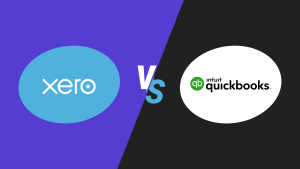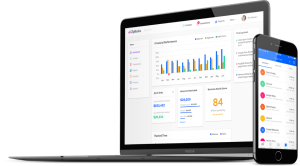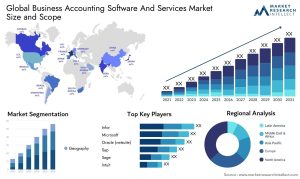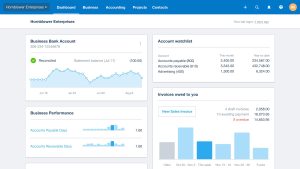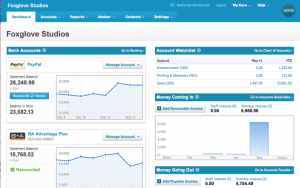Managing finances is crucial for service businesses. The right accounting software can make a big difference.
Service businesses need tools that handle invoicing, payroll, and expenses efficiently. Accounting software tailored for these needs can save time and reduce errors. It provides a centralized platform to track financial transactions, helping businesses stay organized. With features like automated billing, expense tracking, and financial reporting, the software simplifies complex tasks.
It also ensures compliance with tax regulations, which is essential for any business. In this blog, we explore the key benefits of accounting software for service businesses. Discover how these tools can enhance productivity and streamline financial management.

Credit: www.softrak.com
Introduction To Accounting Software
Accounting software is crucial for service businesses. It helps manage finances efficiently. Service businesses often deal with multiple clients, projects, and billing cycles. This complexity makes accounting software essential. It ensures accuracy and saves time.
Importance For Service Businesses
Service businesses rely on accurate financial records. These records help in budgeting and planning. Accounting software provides real-time financial data. This data helps in making informed decisions.
Manual accounting is prone to errors. Errors can lead to financial losses. Accounting software reduces these risks. It automates calculations and processes.
Service businesses need to track expenses. Accounting software simplifies this task. It categorizes expenses automatically. This helps in identifying cost-saving opportunities.
Billing clients is another critical task. Accounting software streamlines invoicing. It ensures timely payments and improves cash flow. Clients appreciate accurate and prompt invoices.
Key Features
Good accounting software offers several key features. These features make it valuable for service businesses.
First, it should have invoicing capabilities. Automated invoicing saves time. It also reduces errors.
Second, expense tracking is crucial. The software should categorize expenses. This helps in managing budgets.
Third, it should offer financial reporting. Reports provide insights into business health. They help in strategic planning.
Fourth, integration with other tools is important. The software should integrate with payment gateways. This makes transactions seamless.
Finally, user-friendliness is key. The software should be easy to navigate. This ensures that even non-accountants can use it effectively.
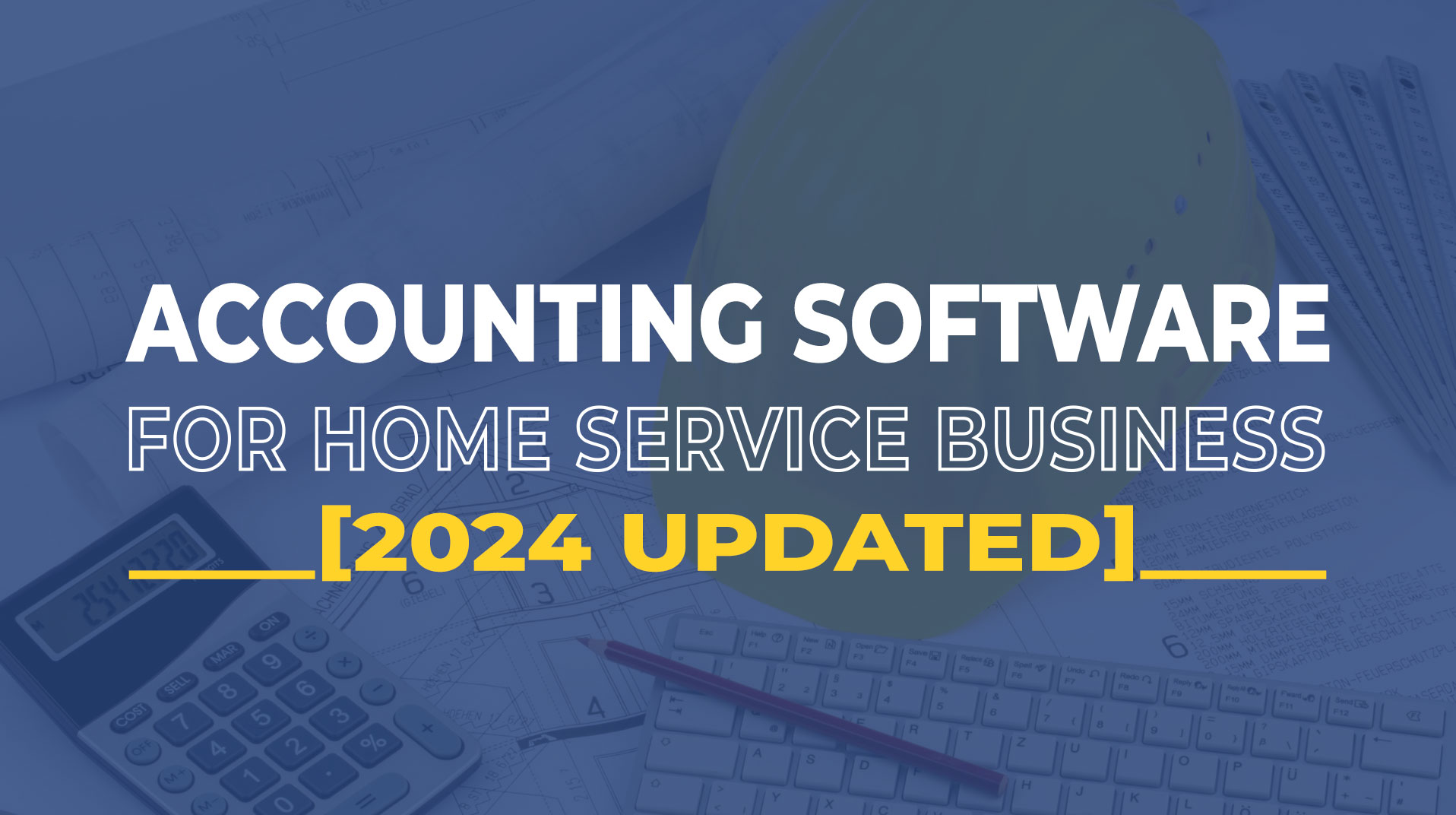
Credit: onebasemedia.co.uk
Benefits Of Using Accounting Software
Accounting software offers several benefits for service businesses. It helps streamline financial tasks and ensure smoother operations. Using accounting software can bring many advantages that enhance productivity and accuracy.
Time-saving
Accounting software saves time by automating repetitive tasks. You can quickly generate invoices and track payments. It reduces the need for manual data entry, allowing you to focus on other important tasks. This efficiency boosts overall productivity.
Accuracy Improvement
Using accounting software improves accuracy in financial records. Manual calculations can lead to errors, but software ensures precise data. It reduces the risk of mistakes in billing and reporting. Accurate records help you make better business decisions.
Top Accounting Software For Service Businesses
Choosing the right accounting software can transform your service business operations. The right tools can streamline tasks, improve accuracy, and save time. Let’s explore the top accounting software for service businesses.
Popular Choices
Many accounting software options cater to service businesses. Here are some popular choices:
- QuickBooks Online: Easy to use, widely recognized, and suitable for small to mid-sized businesses.
- FreshBooks: User-friendly interface, ideal for freelancers and small business owners.
- Xero: Offers comprehensive features with strong integration capabilities.
- Zoho Books: Affordable and integrates well with other Zoho products.
- Wave: Free accounting software with essential features for startups and small businesses.
Comparison Of Features
| Software | Key Features | Pricing |
|---|---|---|
| QuickBooks Online |
|
Starts at $25/month |
| FreshBooks |
|
Starts at $15/month |
| Xero |
|
Starts at $11/month |
| Zoho Books |
|
Starts at $9/month |
| Wave |
|
Free |
Each software has its strengths. QuickBooks Online is robust with extensive features. FreshBooks is known for its simplicity and ease of use. Xero offers strong integration and multi-currency support. Zoho Books is affordable and integrates well with other Zoho products. Wave is a great free option for startups and small businesses.

Credit: www.getservicebox.com
Integrating Accounting Software
Integrating accounting software can transform how service businesses manage their finances. With seamless integration, businesses streamline operations, reduce errors, and save time. This process involves connecting your existing systems with accounting software to ensure smooth data flow. It enhances accuracy and provides real-time insights into your financial health.
Steps For Integration
Follow these steps for a successful integration:
- Analyze Your Current Systems: Assess your existing software and identify integration needs.
- Choose Compatible Accounting Software: Select software that works well with your current systems.
- Plan the Integration: Develop a step-by-step plan to connect your systems.
- Backup Data: Ensure all data is backed up before starting the integration.
- Configure Settings: Adjust settings in both systems for seamless data exchange.
- Test the Integration: Perform tests to ensure everything works correctly.
- Train Your Team: Provide training for your team to use the integrated system effectively.
Common Challenges
Integrating accounting software can present several challenges:
- Compatibility Issues: Not all software integrates smoothly. Ensure compatibility before starting.
- Data Migration: Moving data can be complex. Plan carefully to avoid data loss.
- Technical Difficulties: Technical issues may arise. Have IT support available.
- User Training: Teams may need time to adapt. Provide adequate training and support.
- Cost: Integration can be costly. Budget for potential expenses.
Avoid these challenges by thorough planning and preparation. This ensures a smooth and successful integration process.
Customization Options
Service businesses often need flexible tools to manage their finances. This is where customization options in accounting software play a key role. Let’s explore how these features can benefit your business.
Tailoring To Business Needs
Every service business is unique. This is why tailoring accounting software to specific needs is crucial. Customization options allow you to set up modules and features that align with your operations.
For instance, you can:
- Create custom invoices with your branding
- Set up unique expense categories
- Generate specific financial reports
This ensures that your software works the way you do, making your workflow smoother.
Scalability
As your business grows, your accounting needs will evolve. Scalable accounting software adapts to these changes. You can start with basic features and add more as required.
Benefits of scalable software include:
| Features | Benefits |
|---|---|
| Adding new users | Accommodates growing teams |
| Integrating new tools | Enhances software capabilities |
| Upgrading storage | Handles more data efficiently |
This flexibility ensures that the software remains useful as your business expands.
Cost Considerations
Choosing the right accounting software for your service business is vital. Understanding the cost considerations can help you make an informed decision. This section will explore different cost aspects, helping you budget effectively.
Subscription Models
Most accounting software uses a subscription model. This means you pay monthly or annually. Different plans offer various features. Basic plans are usually cheaper but have limited functionality. Premium plans offer more features but cost more. Here’s a simple table to compare:
| Plan Type | Monthly Cost | Annual Cost | Key Features |
|---|---|---|---|
| Basic | $10 | $100 | Invoicing, Expense Tracking |
| Standard | $20 | $200 | Payroll, Time Tracking |
| Premium | $30 | $300 | Advanced Reporting, Inventory Management |
Hidden Costs
Be aware of potential hidden costs. These can make a seemingly affordable option expensive. Hidden costs may include:
- Setup Fees
- Extra User Charges
- Customer Support
- Data Storage
Some software charges for additional users. Others may have costs for premium customer support. Always read the fine print. This ensures you understand all costs involved.
Training And Support
Understanding and using accounting software can be a challenge for service businesses. Good training and support make this process easier. This section explains the training and support offered for accounting software.
Onboarding Process
The onboarding process is the first step. It helps new users understand the software. Most providers offer a step-by-step guide. This guide covers all the basic features.
During onboarding, users learn how to set up their accounts. They also learn how to manage invoices and track expenses. Some providers offer video tutorials. These videos are easy to follow and very helpful.
Another feature of onboarding is live webinars. These webinars are interactive. Users can ask questions and get answers in real-time. This makes learning more effective.
Ongoing Assistance
After onboarding, users still need ongoing assistance. This support helps users solve any issues that arise. Many providers offer 24/7 customer support. This means users can get help at any time.
Support can be provided in different ways. Some companies have a help center. This center has articles and FAQs. Users can find answers to common questions here.
Another way to get support is through live chat. This is a quick way to get help. Users can chat with a support agent directly. This is very useful for urgent issues.
Some providers also offer community forums. In these forums, users can share tips and advice. They can also learn from other users’ experiences.
Future Of Accounting Software
The future of accounting software is bright for service businesses. The industry is evolving rapidly with new trends and technologies. These changes promise to make accounting more efficient and user-friendly. Let’s explore some of the key developments shaping the future of accounting software.
Emerging Trends
Automation is a major trend in accounting software. It helps reduce manual work and errors. Automation tools can handle tasks like data entry and invoice processing. This saves time and allows staff to focus on more important work.
Cloud computing is another significant trend. Cloud-based accounting software offers many benefits. It allows access to financial data from anywhere, anytime. It also ensures data is secure and up-to-date. Many service businesses are moving to cloud-based solutions for these reasons.
Technological Advancements
Artificial Intelligence (AI) is transforming accounting software. AI can analyze large amounts of data quickly and accurately. It can identify patterns and trends that humans might miss. This helps businesses make better financial decisions.
Blockchain technology is also making an impact. It provides a secure and transparent way to record transactions. This can reduce fraud and improve trust in financial data. Many service businesses are starting to explore blockchain for their accounting needs.
Mobile accounting apps are becoming more popular. These apps allow business owners to manage finances on the go. They can check balances, send invoices, and track expenses from their smartphones. This flexibility is especially useful for small service businesses.
Case Studies
Case studies highlight real-world applications of accounting software for service businesses. They provide insights into how businesses have implemented these tools. They also show the challenges faced and solutions found.
Successful Implementations
One service company saw increased efficiency by using accounting software. They automated invoicing, which reduced manual errors. This change led to quicker payments and better cash flow.
Another example involves a consulting firm. They integrated their accounting software with their CRM system. This integration provided a unified view of client data and financials. It helped them make better business decisions.
A third case is a marketing agency. They used accounting software to track project costs in real-time. This tracking allowed them to stay within budget and improve profitability.
Lessons Learned
From these case studies, several lessons emerge. First, choosing the right software is crucial. It must fit the specific needs of your business.
Second, training staff is essential. Proper training ensures everyone can use the software effectively. This leads to smoother operations and fewer mistakes.
Finally, ongoing support and updates are important. Regular updates keep the software secure and functional. Support services help resolve issues quickly, ensuring minimal disruption to the business.
Frequently Asked Questions
What Is Accounting Software For Service Businesses?
Accounting software for service businesses helps manage finances. It tracks expenses, invoices, and payments. It’s essential for accurate financial reporting.
Why Use Accounting Software In Service Businesses?
Using accounting software improves efficiency. It automates tasks like invoicing and expense tracking. It also ensures accurate financial records.
How Does Accounting Software Benefit Service Businesses?
Accounting software saves time and reduces errors. It provides real-time financial insights. It also simplifies tax preparation and compliance.
What Features Should Service Business Accounting Software Have?
Essential features include invoicing, expense tracking, and payroll management. Integration with other tools and financial reporting is also important.
Conclusion
Choosing the right accounting software for your service business is essential. It helps manage finances efficiently and saves time. Look for features that fit your specific needs. User-friendly software ensures smooth operations. Regular updates and good support are key. Invest wisely, and your business will benefit.
The right tool can make a big difference. Make sure to review options carefully before deciding. Your business growth depends on smart choices.

